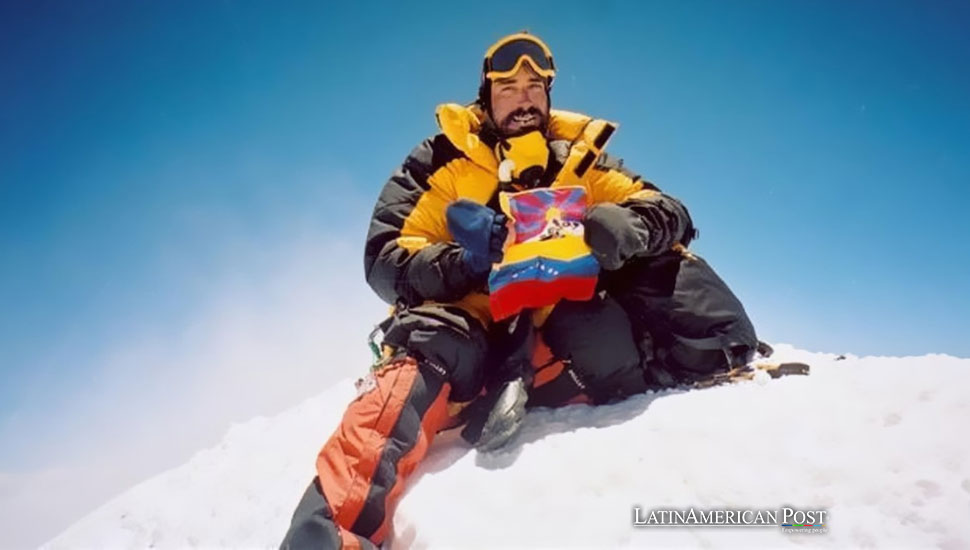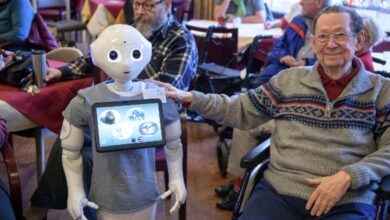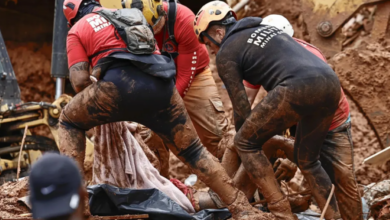The Dramatic Death and Legacy of Latin America’s Most Legendary Mountain Climber

José Antonio Delgado Sucre, one of Latin America’s most accomplished mountaineers, left a lasting impact on the climbing community. His tragic death on Nanga Parbat, known as ‘Killer Mountain,’ in 2006 marked the end of a remarkable journey that continues to inspire climbers worldwide.
José Antonio Delgado’s Record-Breaking Feats
Born in Caracas, Venezuela, on May 13, 1965, José Antonio Delgado Sucre pioneered Latin American mountaineering, achieving feats that placed him among the world’s most elite climbers. Throughout his career, he conquered five of the fourteen eight-thousanders, the world’s highest peaks, including Mount Everest, Shishapangma, and Gasherbrum II. Known affectionately as el Indio for his strength and endurance, Delgado’s accomplishments were not limited to summits. He also set several mountaineering records, including the fastest summit for a Venezuelan on the Aconcagua (in 34 hours) and Huascarán (in 14 hours).
Delgado’s impact on the climbing community extended beyond his achievements. In 1997, he co-founded Proyecto Cumbre, a Venezuelan initiative to promote mountaineering and adventure sports in the country. His leadership in this project and his passion for the outdoors inspired countless climbers across Latin America. In 2001, Delgado led the first-ever Venezuelan expedition to Mount Everest, an ambitious undertaking that resulted in him and fellow climber Marcus Tobía reaching the summit on May 23. This achievement made Delgado the first Venezuelan to conquer the world’s highest peak, further solidifying his place in mountaineering history.
Yet, despite these significant accomplishments, Delgado’s drive was never about fame. His love for the mountains and respect for the natural world guided him throughout his career. He was a man who found peace in the harshest conditions, pushing himself beyond physical and mental limits. His climbing feats were celebrated across Latin America, and he symbolized perseverance and resilience for those who followed in his footsteps.
Nanga Parbat’s Deadly Challenge
In June 2006, Delgado embarked on his final expedition, leading a Venezuelan team to Pakistan’s Nanga Parbat, the ninth-highest mountain in the world at 8,126 meters (26,660 feet). Known as “Killer Mountain” due to its treacherous conditions and high fatality rate, Nanga Parbat had claimed dozens of lives before Delgado’s attempt. The mountain is infamous for its unforgiving terrain and unpredictable weather, making it one of the most dangerous climbs in the world.
Delgado and his climbing partner Edgar Guariguata arrived in Pakistan with high hopes. However, Guariguata was forced to remain at base camp due to illness, leaving Delgado to continue the climb alone. On July 11, after weeks of preparation and climbing, Delgado reached the summit of Nanga Parbat, a momentous achievement as the first Venezuelan to do so. Unfortunately, what followed was a tragic sequence of events that would ultimately claim his life.
On his descent, Delgado was caught in a severe snowstorm that lasted for days, halting his progress and leaving him stranded. He reached Camp Four but was without food or water for two days. Weakened by the harsh conditions, Delgado attempted to descend to Camp Three, but communications with base camp ceased. His fellow climbers, including Guariguata, feared the worst as days passed without any word from Delgado.
Heartbreaking Communications with Edgar Guariguata
Before the storm cut off all communications, Delgado had sent several messages to his friend and climbing partner, Edgar Guariguata, who remained at base camp. These exchanges, filled with hope and determination, were a testament to Delgado’s indomitable spirit. Despite extreme adversity, he remained optimistic, reassuring Guariguata that he would return to camp despite the storm.
In one of their final communications, Delgado acknowledged the storm’s severity but maintained his resolve. “I’ll make it, brother,” he told Guariguata. “Just need to push a little further.” These words, though filled with hope, would be some of his last. As the days passed and the snowstorm continued to rage, it became clear that Delgado was in serious trouble. His messages stopped, and Guariguata could only wait in agony as rescue efforts were launched.
On July 17, an SOS message was sent to the Pakistani authorities, and a six-member rescue team of experienced Pakistani mountaineers set out to search for Delgado. Despite the difficult conditions, these climbers braved deep snow and near-vertical slopes, determined to find their missing colleague. On July 22, their efforts led them to Delgado’s body, found at an altitude of 7,100 meters (23,294 feet), just 300 meters from his tent. The rescue team, after consulting with Delgado’s family, buried him where he was found, on the slopes of the mountain that had claimed his life.
For Guariguata, the loss was devastating. He had shared many climbs with Delgado, and their friendship had been forged in extreme conditions. The heartbreak of losing a close friend and a climbing partner under such tragic circumstances was overwhelming. Yet, Guariguata would go on to honor Delgado’s memory, ensuring that his legacy lived on in the mountaineering community.
Legacy and Inspiration for Future Climbers
José Antonio Delgado’s death was a profound loss for Venezuela and the global climbing community. His legacy, however, continues to inspire climbers worldwide. He was posthumously honored with several awards, including the Orden al Mérito Deportivo and the Orden Vicente Emilio Sojo 2001, recognizing his contributions to Venezuelan sports and mountaineering.
Delgado’s life was also immortalized in a documentary film released in 2008, which chronicled his career and final expedition on Nanga Parbat. Co-produced by his wife, Frida Ayala, the film captured the essence of Delgado’s passion for climbing and his enduring spirit. It also paid tribute to the rescue efforts of the Pakistani mountaineers who risked their lives to bring closure to his family and friends.
In Venezuela, Delgado’s achievements continue to inspire a new generation of climbers. His involvement in the Proyecto Cumbre and his leadership in the Centro Excursionista Loyola helped shape the country’s mountaineering culture, encouraging young adventurers to pursue their dreams. Even in death, Delgado remains a beacon of perseverance, reminding climbers of the dangers and rewards of pursuing the world’s most challenging peaks.
Delgado’s story also reminds us of the risks inherent in high-altitude climbing. Like many of the world’s eight-thousanders, Nanga Parbat demands physical strength, mental fortitude, and an acceptance of the unpredictable forces of nature. Delgado, who faced these challenges with courage and grace, has left a legacy of resilience that will continue to inspire climbers for generations to come.
Also read: Latin Stars Are Taking Over the Entrepreneurial World
José Antonio Delgado Sucre will forever be remembered as one of Latin America’s most successful and beloved mountaineers. His untimely death on Nanga Parbat was a tragic end to a life dedicated to exploring the world’s highest and most dangerous peaks. Yet, even in death, his spirit endures, inspiring climbers to push their limits and pursue their dreams with the same passion and determination that defined Delgado’s remarkable career. As the climbing community remembers him, his legacy as el Indio, a symbol of strength and perseverance, will remain etched in the annals of mountaineering history.





